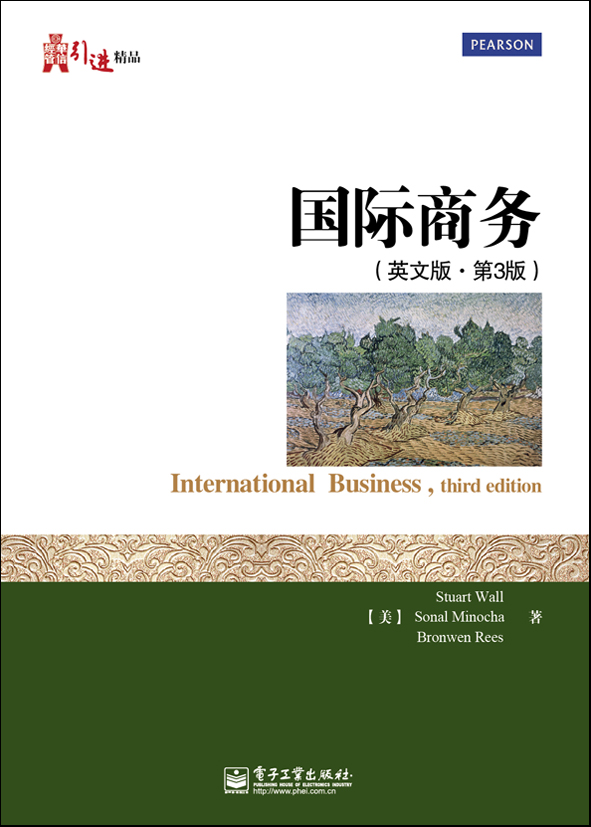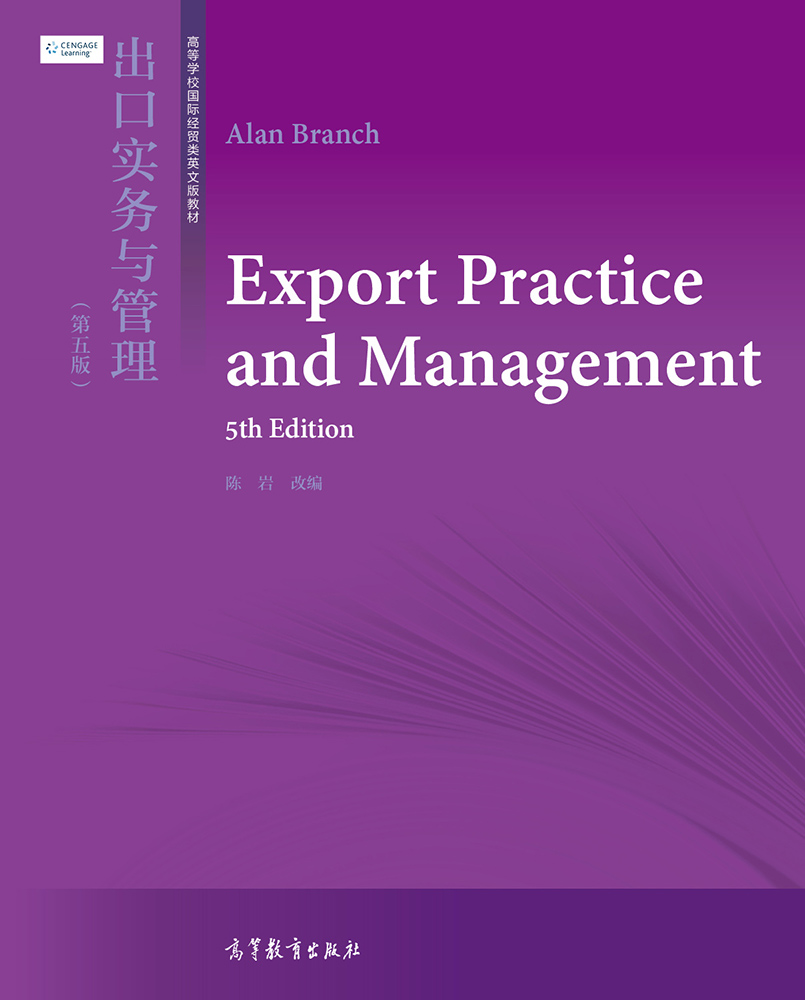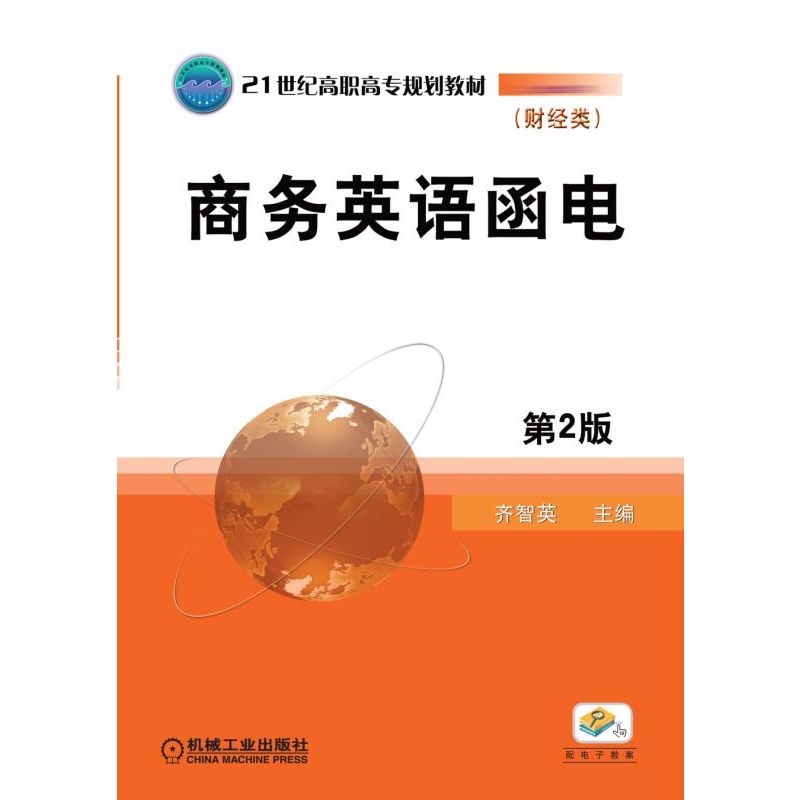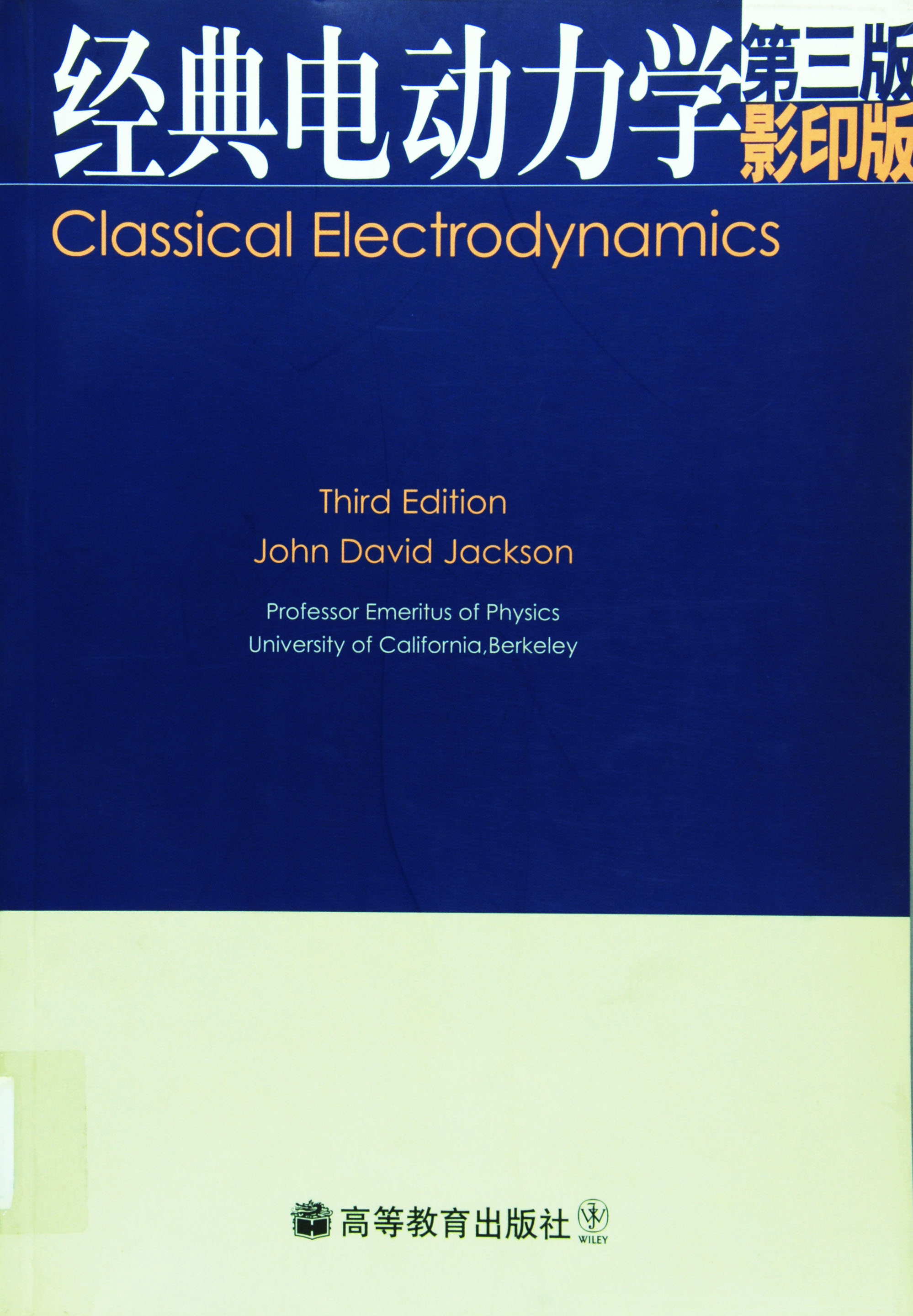国际物流——国际贸易中的运作管理(第4版) / 国外大学优秀教材·工业工程系列(影印版)
定价:¥68.00
作者: [美]Pierre A.David
出版时间:2014-08
出版社:清华大学出版社
- 清华大学出版社
- 9787302371274
- 1-1
- 170825
- 16开
- 2014-08
- F252
- 机电类
内容简介
《国际物流:国际贸易中的运作管理(第4版 影印版)》是美国vid(戴维)教授20余年从事“国际物流”教学的结晶,配合大量的图表和实例,对国际物流中各个要素(国际合同、国际贸易条款、国际运输等)进行了详尽的描述,已被美国多数商学院选为“国际物流”课程的教材。
《国际物流:国际贸易中的运作管理(第4版 影印版)》适合作为高等院校物流专业研究生或高年级本科生的国际物流教材,也可作为企业国际物流、国际贸易的培训教材。
《国际物流:国际贸易中的运作管理(第4版 影印版)》适合作为高等院校物流专业研究生或高年级本科生的国际物流教材,也可作为企业国际物流、国际贸易的培训教材。
目录
Preface
1 International Trade
1.1 International Trade Growth
1.2 International Trade Mile-stones
1.3 Largest Exporting and Importing Countries
1.4 International Trade Drivers
1.5 International Trade Theories
1.6 The International Business Environment
2 International Supply Chain Man-agement
2.1 Historical Development
2.2 Logistics and Supply Chain Management
2.3 Elements of International Logistics
2.4 The Economic Importance ofLogistics
2.5 International Reverse Logistics
3 International Infrastructure
3.1 Definitions
3.2 Transportation Infrastructure
3.3 Communication Infrastructure
3.4 Utilities Infrastructure
3.5 Services Infrastructure
3.6 Legal and Regulatory Infrastructure
4 International Methods of Entry
4.1 Entry Strategy Factors
4.2 Indirect Exporting
4.3 ActiveExporting
4.4 Production Abroad
4.5 Parallel Imports
4.6 Counterfeit Goods
4.7 Other Issues in Methods of Entry
5 International Contracts
5.1 Lex Mercatoria
5.2 International Sales ContractsandtheCISG
5.3 Agency versus Distributor-shipLegalIssues
5.4 Elements ofan Agency or Distributor Contract
5.5 Termination
5.6 Arbitration
5.7 Mediation
6 Terms of Trade or Incoterms Rules
6.1 International CommerceTerms
6.2 Understanding Incoterms Rules
6.3 Incoterms Rule Strategy
6.4 Ex-Works(EXW)
6.5 Free Carrier (FCA)
6.6 CarriagePaidTo(CPT)
6.7 Carriage and Insurance PaidTo(CIP)
6.8 Delivered At Terminal (DAT)
6.9 Delivered At Place (DAP)
6.10 Delivered Duty Paid (DDP)
6.11 Free Alongside Ship (FAS)
6.12 Free on Board (FOB)
6.13 Cost and Freight (CFR)
6.14 Cost, Insurance, and Freight(CIF)
6.15 Summary of Incoterms. Re-sponsibilities
6.16 Common Errors in Incoterms. Rules Usage
6.17 Incoterms Rules as a MarketingTool
7 Terms of Payment
7.1 International Payment Characteristics
7.2 Alternative Terms of Payment
7.3 Risks in International Trade
7.4 CashinAdvance
7.5 OpenAccount
7.6 LetterofCredit
7.7 Additional Types of Letters of Credit
7.8 Documentary Collection
7.9 Forfaiting
7.10 Purchasing Cards
7.11 TradeCard
7.12 Bank Guarantees
7.13 Terms of Payment as a Mar-ketingTool
8 Managing Transaction Risks
8.1 Currency Used in the Sales Contract
8.2 The System of Currency ExchangeRates
8.3 Theories of Exchange Rate Determinations
8.4 Exchange Rate Forecasting
8.5 Managing Transaction Exposure
8.6 International Banking Institutions
8.7 Currency of Payment as a Marketing Tool
9 International Commercial Documents
9.1 Documentation Requirements
9.2 Invoices
9.3 Export Documents
9.4 ImportDocuments
9.5 Transportation Documents
9.6 ElectronicDataInterchange
9.7 Document Preparation as a MarketingTool
11 International Ocean Transportation
11.1 Types of Service
11.2 Size of Vessels
11.3 Types of Vessels
11.4 Flag
11.5 Liability Conventions
11.6 Non-Vessel-Operating CommonCarriers
11.7 Security Requirements
12 International Air Transportation
12.1 Cargo Airlines, Airports, and Markets
12.2 Types of Service
12.3 Types of Aircraft
12.4 AirfreightTariffs
12.5 International Regulations
12.6 Environmental Issues and Sustainability
12.7 International Air Cargo Security
13 International Land and Multimodal Transportation
13.1 Truck Transportation
13.2 Rail Transportation
13.3 Intermodal Transportation
13.4 Freight Forwarders
13.5 Project Cargo
13.6 Alternative Means of Transportation
13.7 Ground Transportation Security
14 Packaging for Export
14.1 Packaging Functions
14.2 Packaging Objectives
14.3 OceanCargo
14.4 AirTransport
14.5 Road and Rail Transport
14.6 Security
14.7 Hazardous Cargo
14.8 Refrigerated Goods
14.9 Domestic Retail Packaging Issues
14.10 Packaging as a Marketing Tool
15 International Logistics Security
15.1 The Impact of a Significant Disruption in International Logistics
15.2 International Organizations
15.3 The United States’ Approach
15.4 The European Union’s Programs
15.5 Other Countries’ Approach
15.6 Corporate Efforts
16 Customs Clearance
16.1 Duty
16.2 Non-Tariff Barriers
16.3 Customs Clearing Process
16.4 Foreign Trade Zones
17 Developing a Competitive Advantage
17.1 Communication Challenges
17.2 International English
17.3 Special English
17.4 Metric System
17.5 Cultural Sensitivity
17.6 Specific Advice
1 International Trade
1.1 International Trade Growth
1.2 International Trade Mile-stones
1.3 Largest Exporting and Importing Countries
1.4 International Trade Drivers
1.5 International Trade Theories
1.6 The International Business Environment
2 International Supply Chain Man-agement
2.1 Historical Development
2.2 Logistics and Supply Chain Management
2.3 Elements of International Logistics
2.4 The Economic Importance ofLogistics
2.5 International Reverse Logistics
3 International Infrastructure
3.1 Definitions
3.2 Transportation Infrastructure
3.3 Communication Infrastructure
3.4 Utilities Infrastructure
3.5 Services Infrastructure
3.6 Legal and Regulatory Infrastructure
4 International Methods of Entry
4.1 Entry Strategy Factors
4.2 Indirect Exporting
4.3 ActiveExporting
4.4 Production Abroad
4.5 Parallel Imports
4.6 Counterfeit Goods
4.7 Other Issues in Methods of Entry
5 International Contracts
5.1 Lex Mercatoria
5.2 International Sales ContractsandtheCISG
5.3 Agency versus Distributor-shipLegalIssues
5.4 Elements ofan Agency or Distributor Contract
5.5 Termination
5.6 Arbitration
5.7 Mediation
6 Terms of Trade or Incoterms Rules
6.1 International CommerceTerms
6.2 Understanding Incoterms Rules
6.3 Incoterms Rule Strategy
6.4 Ex-Works(EXW)
6.5 Free Carrier (FCA)
6.6 CarriagePaidTo(CPT)
6.7 Carriage and Insurance PaidTo(CIP)
6.8 Delivered At Terminal (DAT)
6.9 Delivered At Place (DAP)
6.10 Delivered Duty Paid (DDP)
6.11 Free Alongside Ship (FAS)
6.12 Free on Board (FOB)
6.13 Cost and Freight (CFR)
6.14 Cost, Insurance, and Freight(CIF)
6.15 Summary of Incoterms. Re-sponsibilities
6.16 Common Errors in Incoterms. Rules Usage
6.17 Incoterms Rules as a MarketingTool
7 Terms of Payment
7.1 International Payment Characteristics
7.2 Alternative Terms of Payment
7.3 Risks in International Trade
7.4 CashinAdvance
7.5 OpenAccount
7.6 LetterofCredit
7.7 Additional Types of Letters of Credit
7.8 Documentary Collection
7.9 Forfaiting
7.10 Purchasing Cards
7.11 TradeCard
7.12 Bank Guarantees
7.13 Terms of Payment as a Mar-ketingTool
8 Managing Transaction Risks
8.1 Currency Used in the Sales Contract
8.2 The System of Currency ExchangeRates
8.3 Theories of Exchange Rate Determinations
8.4 Exchange Rate Forecasting
8.5 Managing Transaction Exposure
8.6 International Banking Institutions
8.7 Currency of Payment as a Marketing Tool
9 International Commercial Documents
9.1 Documentation Requirements
9.2 Invoices
9.3 Export Documents
9.4 ImportDocuments
9.5 Transportation Documents
9.6 ElectronicDataInterchange
9.7 Document Preparation as a MarketingTool
11 International Ocean Transportation
11.1 Types of Service
11.2 Size of Vessels
11.3 Types of Vessels
11.4 Flag
11.5 Liability Conventions
11.6 Non-Vessel-Operating CommonCarriers
11.7 Security Requirements
12 International Air Transportation
12.1 Cargo Airlines, Airports, and Markets
12.2 Types of Service
12.3 Types of Aircraft
12.4 AirfreightTariffs
12.5 International Regulations
12.6 Environmental Issues and Sustainability
12.7 International Air Cargo Security
13 International Land and Multimodal Transportation
13.1 Truck Transportation
13.2 Rail Transportation
13.3 Intermodal Transportation
13.4 Freight Forwarders
13.5 Project Cargo
13.6 Alternative Means of Transportation
13.7 Ground Transportation Security
14 Packaging for Export
14.1 Packaging Functions
14.2 Packaging Objectives
14.3 OceanCargo
14.4 AirTransport
14.5 Road and Rail Transport
14.6 Security
14.7 Hazardous Cargo
14.8 Refrigerated Goods
14.9 Domestic Retail Packaging Issues
14.10 Packaging as a Marketing Tool
15 International Logistics Security
15.1 The Impact of a Significant Disruption in International Logistics
15.2 International Organizations
15.3 The United States’ Approach
15.4 The European Union’s Programs
15.5 Other Countries’ Approach
15.6 Corporate Efforts
16 Customs Clearance
16.1 Duty
16.2 Non-Tariff Barriers
16.3 Customs Clearing Process
16.4 Foreign Trade Zones
17 Developing a Competitive Advantage
17.1 Communication Challenges
17.2 International English
17.3 Special English
17.4 Metric System
17.5 Cultural Sensitivity
17.6 Specific Advice








